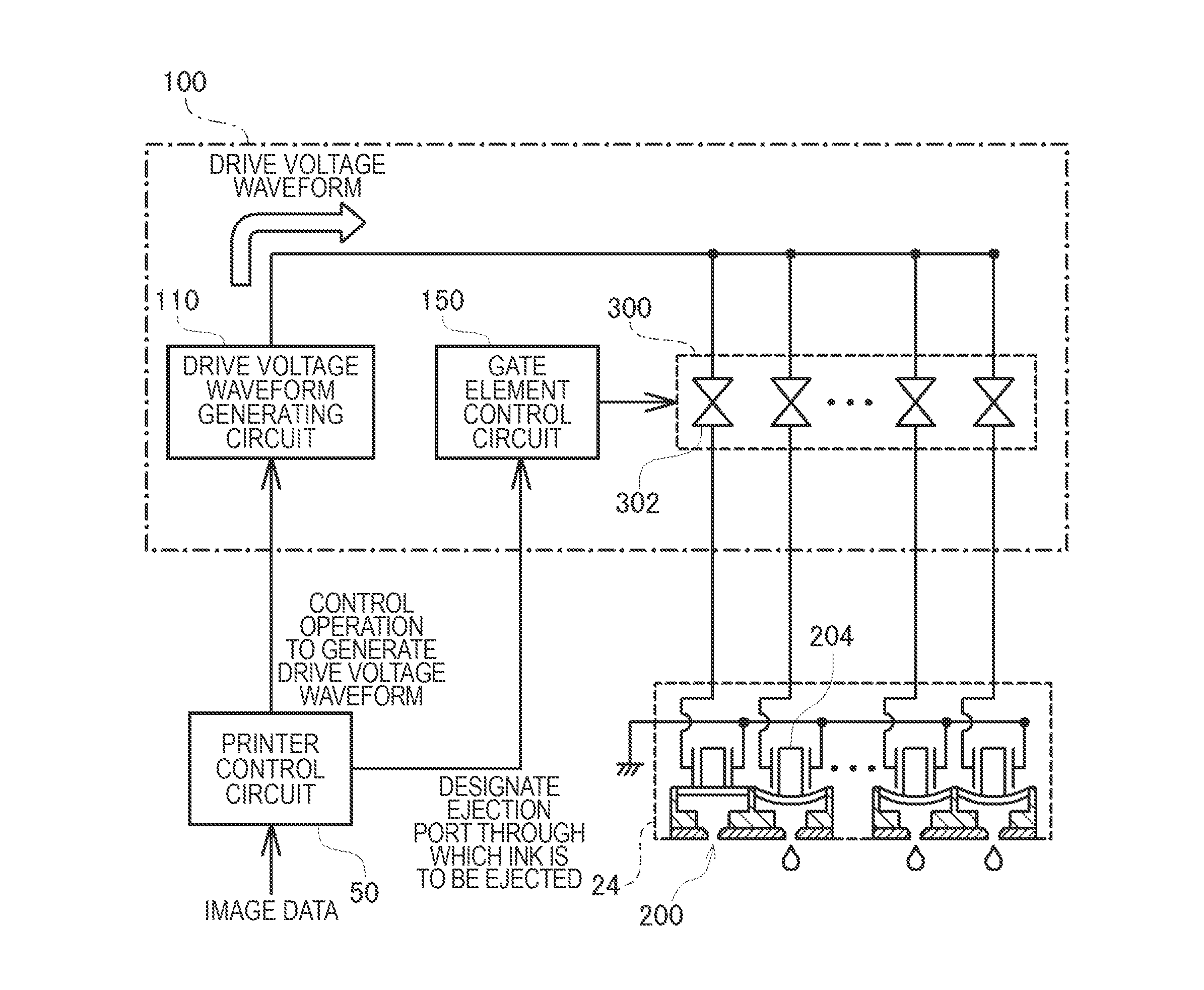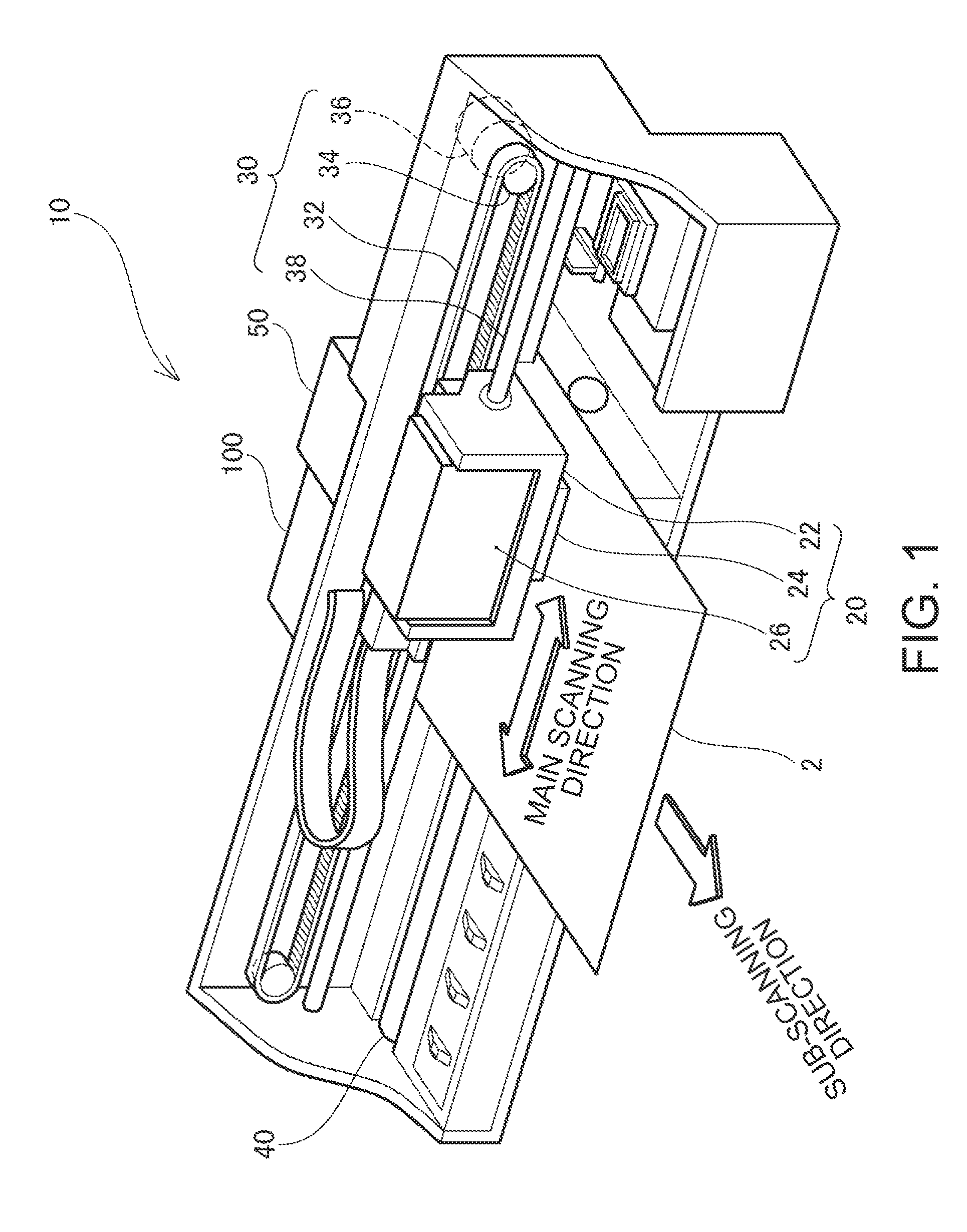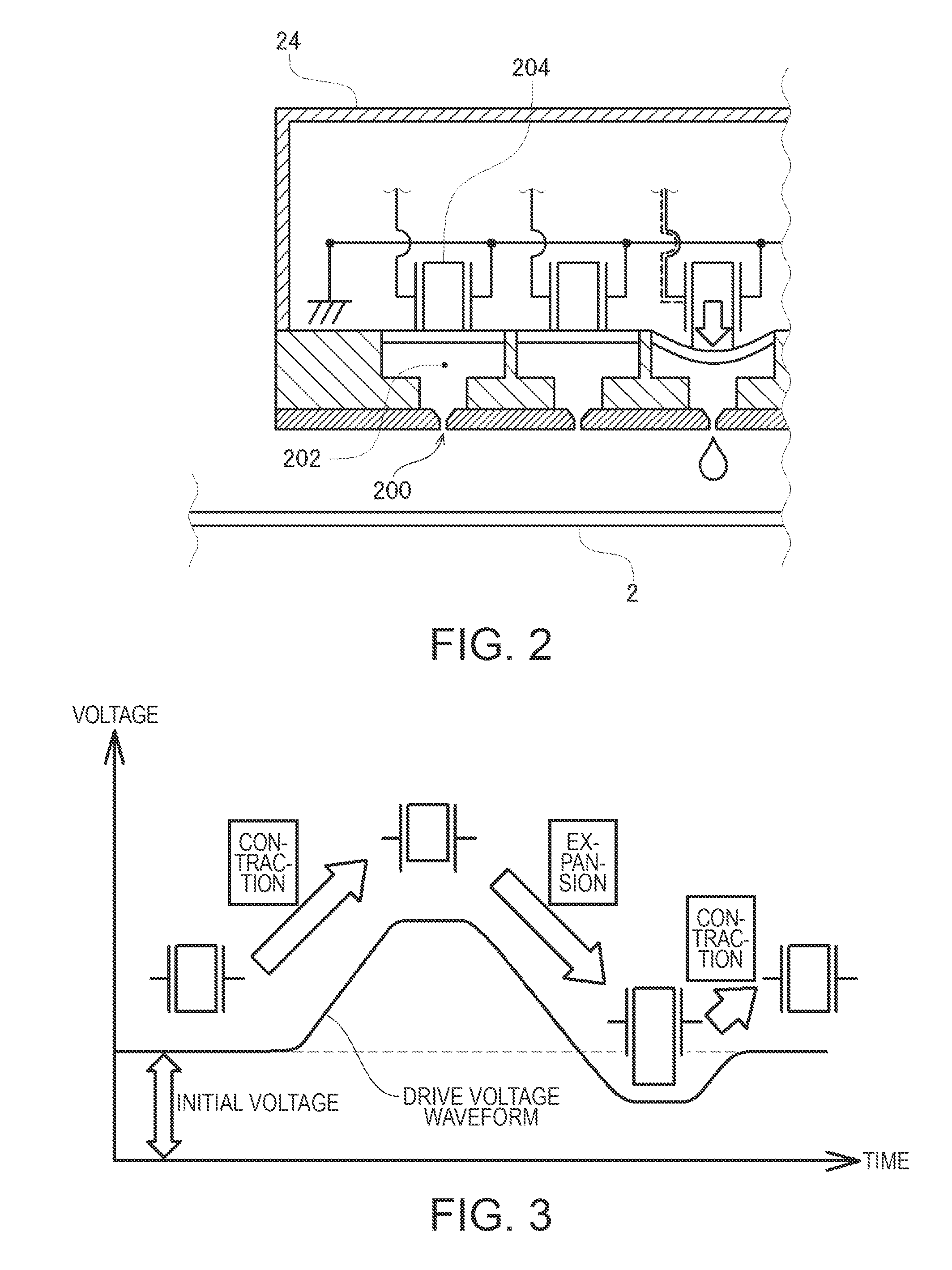Capacitive load driving circuit
a driving circuit and load technology, applied in the direction of ac-dc network circuit arrangement, ac network voltage adjustment, printing, etc., can solve the problems of difficult to achieve the perfect uniformity, the size of the ink drop to be ejected or the speed thereof, and the operation of the load varies, so as to achieve high-quality images and suppress variations in operation.
- Summary
- Abstract
- Description
- Claims
- Application Information
AI Technical Summary
Benefits of technology
Problems solved by technology
Method used
Image
Examples
first modified example
C-1. First Modified Example
[0071]In applying a drive voltage waveform to the piezo element 204 for driving, current flows from the drive voltage waveform generating circuit 110 toward the piezo element 204 when the voltage of the piezo element 204 increases; and in contrast, current flows from the piezo element 204 toward the drive voltage waveform generating circuit 110 when the voltage of the piezo element 204 decreases. Between the drive voltage waveform generating circuit 110 and the piezo element 204, therefore, a path in which current directed from the drive voltage waveform generating circuit 110 toward the piezo element 204 flows and a path in which current directed from the piezo element 204 toward the drive voltage waveform generating circuit 110 flows are separately disposed, and a gate element is provided in each of the paths, whereby it is possible to select and flow the current flowing in one of the directions. Using such a configuration makes it possible to apply an a...
second modified example
C-2. Second Modified Example
[0081]In the gate unit 300 of the first modified example as described above, even when the gate element is brought into the conductive state earlier than the timing in which the voltage of the drive voltage waveform generating circuit 110 and the voltage of the piezo element 204 coincide with each other, current can be blocked until the voltage of the drive voltage waveform generating circuit 110 and the voltage of the piezo element 204 coincide with each other. In addition, it is possible to allow current to start flowing at an accurate timing in which the voltage of the drive voltage waveform generating circuit 110 and the voltage of the piezo element 204 coincide with each other. Therefore, when the gate element is brought into the conductive state, the gate element may not be brought into the conductive state at the timing in which the voltage of the drive voltage waveform generating circuit 110 and the voltage of the piezo element 204 coincide with e...
third modified example
C-3. Third Modified Example
[0082]In the gate unit 300 of the first modified example, the gate element A and the gate element B are manipulated independently of each other. However, both the gate element A and the gate element B may be manipulated, and further, the so-called exclusive manipulation may be performed in which the gate element B is brought into the disconnection state when the gate element A is brought into the conductive state, while the gate element B is brought into the conductive state when the gate element A is brought into the disconnection state.
[0083]FIGS. 9A to 9C are explanatory diagrams showing a state of applying a voltage waveform to the piezo element using a gate unit of a third modified example where two gate elements are exclusively manipulated. As shown in FIG. 9A, in gate timing data used in the gate unit of the third modified example, it is set to perform the so-called exclusive manipulation in which the gate element B is brought into the “OFF” state w...
PUM
 Login to View More
Login to View More Abstract
Description
Claims
Application Information
 Login to View More
Login to View More - R&D
- Intellectual Property
- Life Sciences
- Materials
- Tech Scout
- Unparalleled Data Quality
- Higher Quality Content
- 60% Fewer Hallucinations
Browse by: Latest US Patents, China's latest patents, Technical Efficacy Thesaurus, Application Domain, Technology Topic, Popular Technical Reports.
© 2025 PatSnap. All rights reserved.Legal|Privacy policy|Modern Slavery Act Transparency Statement|Sitemap|About US| Contact US: help@patsnap.com



